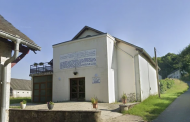Nahla Abdel Moneim
Through its financial wealth, Qatar is taking advantage of any outlets available in the economically crisis Sudan, because of its secession from the oil-rich south, for political and development access and finding an influential role on the scene, especially in light of the transitional period in which the country is living.
Here, the file of gas and oil supplies, besides investing in the Sudanese island overlooking the Red Sea Suakin emerges as the most dangerous economic changes and the most internal and regional impact that Qatar exploits to achieve its agenda.
Investing in the gas sector
In 2014, Qatar took advantage of the Sudan crisis and crept into the Sudanese economy sector as a matter of investment. At that time, Sudanese Defense Minister Abdel Rahim Mohamed Hassan announced that Khartoum is discussing with Doha in order to sign agreements to import Qatari gas to generate electricity in his country.
Against the background of these investments in hydrocarbons, Qatar employs its media tools such as the Al-Jazeera Network and the East channels that it opened for the group’s remnants in Turkey to fuel flimsy disputes in Sudan on the impact of exploration in gas fields in the Egyptian region of Halayb
This comes as Qatar’s institutions play on the Sudanese crisis and Egyptian gas in the region as opposing variables that can undermine its success create a crisis between the two countries.
Invest in Suakin Island
As for the island of Suakin, which is located on the Red Sea, Qatar exploits it for internal investments that it wants to employ to expand its influence on the sea and threaten the security of the region, as the story of this exploitation started from an agreement signed between the isolated Sudanese President, Omar Al-Bashir and Turkish President Recep Tayyip Erdogan in 2017 to hand over the island to Turkey aspiring to recover Ottoman geography to develop and rehabilitate it and establish a military base on its territory.
According to this agreement, opening the way for the Qatari ally to implement the rest of the agenda in the region. In March 2018, Doha presented an agreement with Khartoum worth 4 billion dollars to develop the Suakin port and divide the profits between the two countries by 51% for Sudan and 49% for Qatar.
The contracts required Qatar to remain investing in this region until 2025, but the transitional council in Khartoum announced in April 2019 the re-review of these agreements on Sukain Island in preparation for the decision to suspend its work and give the Turkish side time to evacuate it and end its exploitation contracts.
Bab al-Mandab threatening Egyptian interests
Qatari political money is paid in Sudan to create internal and regional interests at the same time, as Qatar aims through the island of Suakin to threaten navigation in the Red Sea and the Strait of Bab al-Mandab also targeted by the Gulf emirate, through which approximately 90% of ships transiting the Egyptian Suez Canal passes.
Also, Qatar is striving, through its partnership with Turkey in this spot, to create a hotbed of tension that disturbs Saudi navigation in the region, which in its entirety achieves the goals of the axis of evil represented in Ankara, Doha, Tehran and their brotherhood tools in other countries, and who have repeatedly threatened to use the straits cards and commercial sea lanes as international pressure tools for political profit.








































admin in: How the Muslim Brotherhood betrayed Saudi Arabia?
Great article with insight ...
https://www.viagrapascherfr.com/achat-sildenafil-pfizer-tarif/ in: Cross-region cooperation between anti-terrorism agencies needed
Hello there, just became aware of your blog through Google, and found ...